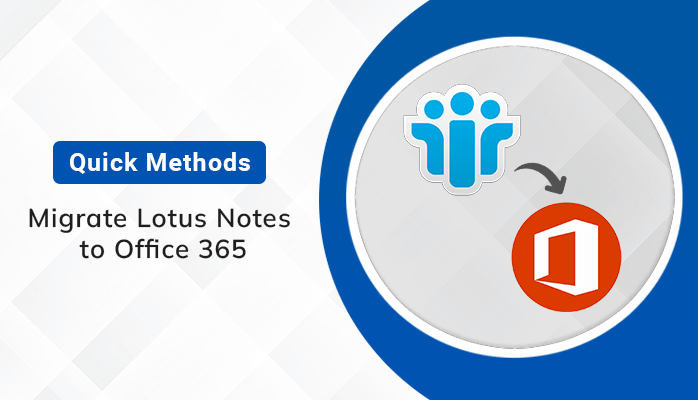What is Blockchain?

Blockchain technology is a revolutionary new form of digital ledger technology that was first introduced in 2009. It has become increasingly popular as its potential to streamline processes and create transparency between parties has been recognized by businesses, governments, and the general public alike. Blockchain is essentially a shared database composed of bundles of data known as blocks that are linked together using cryptography.
One of the most attractive aspects of blockchain is that it can be used to build secure distributed ledgers without requiring any central authority or third-party oversight. This means transactions can be recorded quickly, securely, and effectively without needing to go through a bank or other institution for verification. Furthermore, blockchain’s decentralized nature makes it virtually impossible for anyone to manipulate or tamper with the information on the network once it is added.
At its core, blockchain technology allows for the secure transfer of value between two parties without requiring any third-party intermediary or middleman. This means that parties can interact directly with each other without worrying about security risks associated with traditional forms of transaction processing such as credit card fraud or identity theft. In addition to this, blockchain also provides users with an immutable record that cannot be tampered with in any way by malicious actors or hackers.
If you are interested in updating your skills in Blockchain, our Blockchain Certification Training can help you to enhance your career.
Basics of Blockchain
Blockchain is one of the most revolutionary technologies to have emerged in recent years. It has the potential to disrupt a wide range of industries, from banking and financial services, to healthcare and retail. But what exactly is blockchain? And how can businesses use it?
Blockchain technology uses data structures and cryptography, to create a distributed ledger that records transactions between parties in an immutable way — meaning that once information is committed onto the blockchain, it cannot be altered or deleted without consensus from all parties involved. By recording all activities on an easily-verifiable digital ledger, blockchain eliminates third-party intermediaries such as banks or escrow companies. This makes it ideal for processing high volumes of transactions quickly and at low cost — making it attractive for use by businesses around the world.
A blockchain is essentially a digital ledger that stores records of information such as financial transactions or contracts securely on the internet. It is decentralized and distributed across multiple computers so that no one user has control over the data stored on it. Each transaction or contract stored on the blockchain is known as a ‘block’ which contains all pertinent information regarding its content. All blocks are then connected together to form a chain – hence, ‘blockchain’.
How does it work?
Blockchain technology is revolutionizing the way data is managed and exchanged. It’s a decentralized digital ledger that securely stores information in blocks and allows for efficient, transparent exchanges of data between individuals or organizations on a global scale.
A blockchain works by allowing multiple users to access and record transactions using distributed ledgers, which are then verified in real-time. Each transaction is stored in a block and linked to the previous block with an encrypted hash algorithm, creating an immutable chain of records. This decentralized system helps to ensure that all users have an identical copy of the ledger at all times, eliminating any possibility of fraud or double-spending. Additionally, all records stored on the blockchain are fully secure and cryptographically protected from manipulation or tampering.
At its core, blockchain is a type of distributed ledger technology (DLT) that enables secure peer-to-peer transactions without the need for intermediaries or third parties. The structure of the system relies on cryptographic techniques to ensure that data can’t be changed or hacked by malicious actors. Every time a transaction occurs on the blockchain network it is timestamped and added to an ever-growing chain of blocks that are linked together using cryptography. Each block contains its own unique set of data which serves as an immutable record of all past transactions made on the network.
Benefits of Blockchain
The use of blockchain technology provides a wealth of benefits to customers. It facilitates secure, transparent, and immutable transactions that are faster and more efficient than traditional methods. Additionally, the decentralized nature of blockchain makes it resistant to external interference, preventing fraud and hacking attempts. Furthermore, blockchain can be used to store large amounts of data securely, enabling customers to access their records easily and safely. Moreover, blockchain offers enhanced privacy for customers as it does not require users to disclose their personal information to any third parties. Finally, this technology is cost-effective as its architecture is simpler than traditional databases and requires less energy to maintain. In sum, these features make blockchain an attractive option for businesses and individuals alike.
Blockchain technology is a revolutionary development in the world of digital transactions. With its unparalleled security and decentralization, blockchain provides users with a secure environment to store, transfer, and manage data. Blockchain’s distributed ledger technology allows for efficient and transparent recording and tracking of transactions, making it difficult for hackers to manipulate or tamper with records. Additionally, due to its decentralized nature, blockchain does not require a middleman or third-party involvement for transactions. This leads to faster processing times for digital payments and fewer costs associated with traditional banking methods. Blockchain also offers transparency by providing an immutable record of all transactions that have ever been made on the network. As a result, customers can trust that their data is secure and reliable when using blockchain-based services. Overall, the many benefits of blockchain make it one of the most sought-after technologies in today’s digital world.
Security & Privacy
In today’s digital age, security and privacy are essential components of our everyday lives. With the proliferation of personal data stored in both physical and virtual forms, it is imperative to ensure that this information remains secure from unauthorized access. It is also important to maintain a boundary between one’s private and public life in order to prevent unwanted intrusions into our lives. Fortunately, there are steps that can be taken to ensure the security and privacy of our personal information.
First and foremost, it is important to practice safe online behavior when using the internet by avoiding clicking on suspicious links or downloading unknown software. Additionally, passwords should not only be unique but also contain a combination of upper-case letters, lower-case letters, numbers and special characters as well as regularly updated for maximum protection against hackers.
Applications & Use Cases
Blockchain technology has revolutionized the way we handle data, transactions, and assets. This innovative technology is being adopted by many organizations in various industries as it offers improved security, transparency, and immutability.
In its simplest form, blockchain can be described as a distributed ledger system that records and stores data across multiple computers on a decentralized network. It is used to store digital records of transactions in an open and immutable format, eliminating the need for third-party intermediaries. This makes it ideal for applications such as decentralized finance (DeFi), supply chain management, and asset tracking.
Blockchain also finds application in many other areas including healthcare, energy trading, voting systems, and real estate registration. For example, it can be used to securely store medical records while allowing authorized personnel to access them with greater ease compared to traditional record keeping processes.
Conclusion
In conclusion, blockchain technology is a revolutionary new way of securely storing and transferring data. It offers a much more secure system than traditional methods, as well as provides new opportunities for digital transactions. Blockchain’s decentralization means that no government or organization can take control of the network, ensuring that all participants’ data remains secure. Through its decentralized ledger system and complex cryptography, blockchain ensures that only approved users can access and manipulate data stored on the blockchain network.







